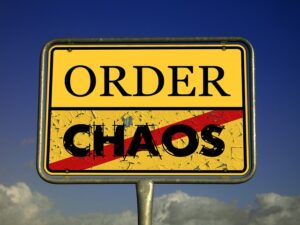Vaccination chaos, still problems to book the second dose
 TORONTO – Tottenham, Bradford, Wasaga Beach, Orillia, Hamilton, Alliston, Innisfil, Barrie. These are some of the locations where today the availability of free places was offered for booking the second dose of vaccine to all those who live in hotspots in Ontario and who received the first dose before May 9. For Toronto residents, it’s a distance between 45 to 95 kilometres.
TORONTO – Tottenham, Bradford, Wasaga Beach, Orillia, Hamilton, Alliston, Innisfil, Barrie. These are some of the locations where today the availability of free places was offered for booking the second dose of vaccine to all those who live in hotspots in Ontario and who received the first dose before May 9. For Toronto residents, it’s a distance between 45 to 95 kilometres.
The second opening day for second-dose bookings was also marked by inconvenience, delays and problems. Anyone who tried to reserve their turn for the recall injection had to go through a maze of internet connections to hiccups, manned servers, delays and slowdowns, and many have dejected. Today they will try their luck again. The fact remains that the logistics and organizational machine activated by the provincial government and local health authorities is cumbersome, problematic and inefficient.
Things don’t really add up; in the individual local health units, there are, of course, complete lists of people who have already received the first dose of the covid vaccine.
As a result, there should also be a rough idea of the number of people ready to receive the recall injection, which should be proportional to the number of residents. Because then in the first two days from the opening of reservations in all the smaller local health units, we find availability of vaccines, while in the main urban centers they continue to run out.
In addition to this, there is also another consideration to be made. Booking does not imply the immediate presence of the dose. Booking the recall injection in three to four weeks should give health authorities enough time to make available to individual mass vaccination centers in the Greater Toronto Area.
In any case, apart from the inconveniences that could also be put in place, the situation should normalize in the coming days. Those who have not been able to book the appointment for the second dose can do so by connecting to the provincial portal.
Meanwhile, the mass vaccination campaign against Covid-19 continues throughout the country. This week, as the federal government confirmed on Monday, about 9.5 million doses of Moderna and Pfizer vaccines will arrive in Canada.
As fully immunized people increase – first and second doses of vaccine, plus another three weeks of time – pressure is mounting on the Ottawa executive to present citizens with the new safety guidelines and protocols that will have to be followed.
In many other countries where the vaccination campaign is at an advanced stage, their governments have already provided guidelines on what fully immunized citizens can do, from returning to the stadium, to cinemas to theatres, from restaurants to travel.
There remains, of course, a significant knot to be resolved and it is also clear why Prime Minister Justin Trudeau, as well as the provincial premiers, wanted to avoid getting dragged into a debate full of pitfalls and grey areas.
In fact, there are obvious concerns that have emerged from many quarters about the risk, actually concrete, of going to create a society composed of two categories of citizens, Serie A and Serie B, those vaccinated against Covid and others.
Any restrictions for those who do not get vaccinated would represent clear violations of the rights of the individual: at the same time, however, the need to protect the health of people, especially the most vulnerable, must also be taken into account. In short, it is a slippery debate, which for now the various levels of government prefer to avoid, but which sooner or later as a society we will have to face.


